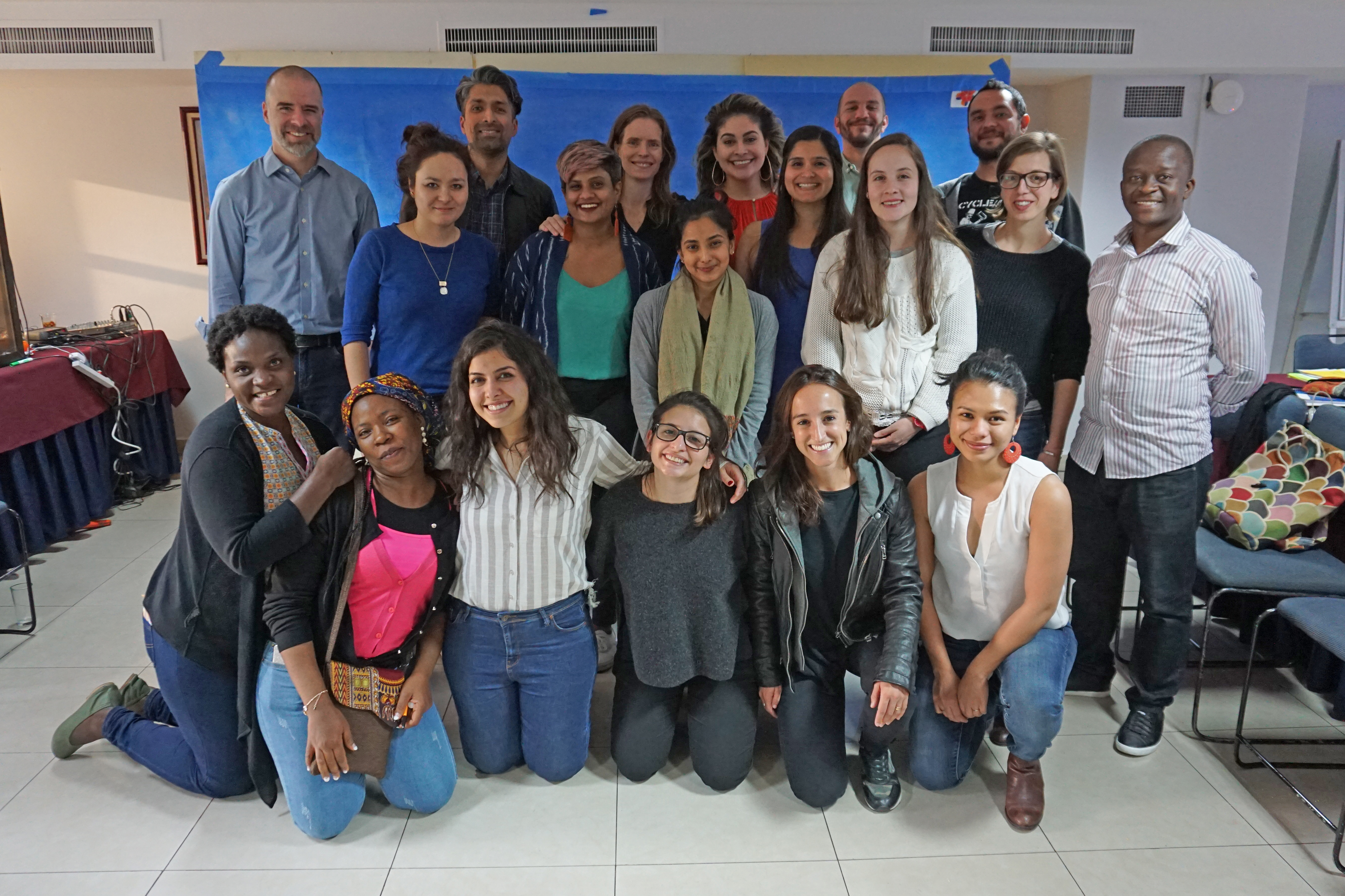Building an alternative narrative on ESCR data
In Mexico City, from the 29 January – 2 February, the Monitoring Working Group of ESCR-Net held its first strategy meeting. The meeting brought together 20 members of ESCR-Net to discuss key challenges in using data to advance socioeconomic rights, develop a shared analysis of how data should improve, and explore openings for collective action.
Read the full report on the meeting here.

What we talked about:
In the first two days, we discussed our own experiences gathering and using data to advance economic, social and cultural rights. We identified the key challenges we face in gathering and using ESCR data, including: availability and accessibility, legitimacy and credibility, representation and disaggregation, data gathering capacity, and issues related to privacy and security.
After identifying the challenges we face in gathering and using data for the advancement of ESCR, we spent some time discussing what kind of data we would like to see.
Key highlights from those discussions:
- The dominant narrative around data — which portrays quantitative data produced by governments as objective and credible, and data (often qualitative) represented by community voices as biased and illegitimate — should be rejected. Hard data is biased too, and government data often poses serious gaps in the way it is collected, interpreted and presented.
- Data — especially official data — should align with human rights standards and obligations. It should be available and accessible to communities in ways that makes it truly useful and relevant for informing decisions that affect their lives.
- Communities should play a central role in determining what data is important and how it is collected, ensuring that it reflects different identities and perspectives.
- In gathering and using data, particular consideration should be placed on the privacy and security of those who might be affected in the process.
To make this vision more concrete, we identified and elaborated four key principles that, if applied, would make data “good” from a human rights perspective. These relate to Availability and Accessibility of data, Disaggregation and Representativeness, Participation and ownership of communities and Privacy and Security.
What we want to do together in 2019:
1. Promote an alternative narrative on ESCR data:
- Building off the four draft principles we developed at the meeting, we would like to articulate a collective position on ESCR data. This position will strengthen and expand the four principles developed at the meeting by seeking inputs from other fellow members of our network and external allies about their lived experiences with ESCR data and researching existing critiques of data and human rights-based approaches to data.
- Supporting ESCR-Net members to advocate for better ESCR data: we will develop a set of tools that members can use in their own advocacy — at national and international levels — to seek improvements in the way ESCR data is gathered, used and made available
2. Support communities in gathering their own data:
To uphold the perspectives of communities, and to address some of the challenges around resources, the Monitoring Working Group would like to directly support communities in gathering their own data. As members of ESCR-Net, we feel that the best way to do this is by working with social movements members of ESCR-Net to strengthen the vision articulated in the Charter for Collective Struggle. To this end, in 2019 we plan to hold conversations and exchanges with social movement members of ESCR-Net, online and in-person, to identify their research and documentation needs, and ways the Monitoring Working Group can support their work.
Read more about the meeting on this brief report
If any you want to get involved in this work, please contact: fferuglio@escr-net.org
